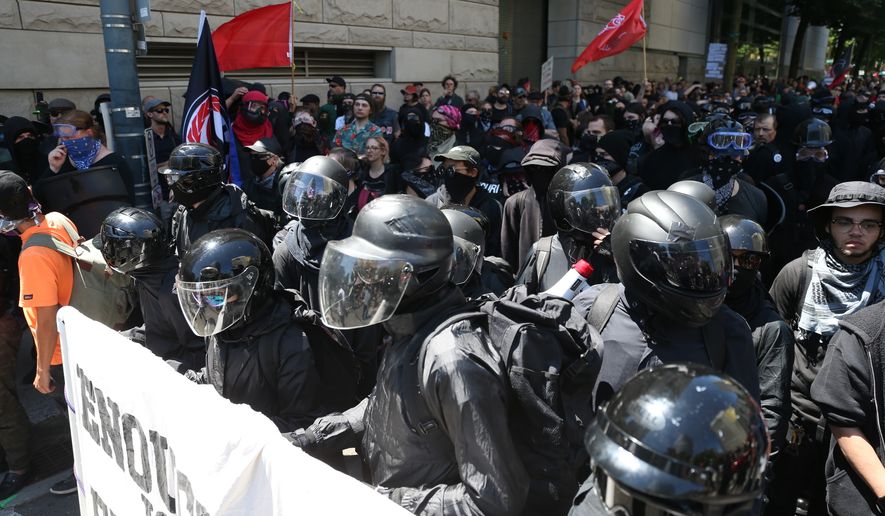OPINION:
The hallmarks of a functioning democracy are clear enough. Open elections, a free and unfettered media, an unbiased judiciary system. The most important is the guarantee that a citizen can write or speak his opinions, popular or not, without fear. The United States does well on open elections (despite the Russians), a free media (fake news aside), and an honest judiciary. On fearless free speech, not so much, or not as much as used to be.
The First Amendment is not taken seriously in certain precincts, and not all of them are on college and university campuses. Last week in Portland, Oregon, the Antifa movement rallied in the city’s downtown, part of the carnival of democracy in America. Antifa decided it would be a good occasion to beat up a gay, Asian journalist of Portland. He is Andy Ngo, an editor of the website Quilette, who has criticized Antifa and apparently Antifa decided he had to be punished.
Video footage of the beating quickly showed up on YouTube, showing Mr. Ngo walking among the protesters before being set upon by masked thugs who threw objects at him. He was forced to the ground and Antifa thugs kicked and punched him. Bruised and cut, Mr. Ngo was taken to hospital, where he was treated for a brain hemorrhage.
Portland’s police stood by and made no attempt to protect him, careful not to get in the way of the thugs. The Portland newspaper, the Oregonian, described him unsympathetically as “a right-wing provocateur.” Others, claiming to be journalists, celebrated the attack on Twitter.
This assault was something out of 1930s Germany, when police stood by, not interfering, watching such attacks on Jews, gays and other Germans despised by the Nazis. As evil as the assault of Mr. Ngo was, more disturbing is that the events in Portland are part of a trend of legitimate political differences being punished by violent street thugs.
Examples are easy to find. Sarah Huckabee Sanders, at the time the president’s press secretary, was asked to leave a restaurant in Lexington, Virginia, because the owner doesn’t like the president. A patron at a bar in Chicago spit upon the president’s son. Byron York of the Washington Examiner observes that not only were these events appalling, but that they are often justified by the elites.
A contributor to The New York Times argued that Border Patrol officers should be “doxxed” a public disclosure of their personal information, including names and addresses. “The identities of the individual Customs and Border Protection agents who are physically separating children from their families and staffing the detention centers are not undiscoverable,” the contributor wrote. “Immigration lawyers have agent names; journalists reporting at the border have names, photos and even videos. These agents’ actions should be publicized, particularly in their home communities.”
Mr. York observes that “the toxicity of the resistance to President Trump has risen in recent days, with the nation’s most respected newspapers publishing rationalizations for denying Trump supporters public accommodation and for doxxing career federal employees, while a journalist found himself under physical attack from the so-called anti-fascist group Antifa, which has stepped up its violent activities since Trump’s election.”
Outrage, alas, is selective and sometimes grudging. In an editorial addressing the savage beating of one of their editors, the Quilette observed that following “the hate-killing of Heather Heyer by James A. Fields Jr. in Charlottesville, Virginia two years ago, attention was drawn to the problem of right-wing political violence. And rightly so. But this attitude of vigilance must be broadened to include all radical groups. It shouldn’t require an actual fatality to goad Portland’s mayor and police into real action. Surely, a brain hemorrhage should be enough.” Indeed.




Please read our comment policy before commenting.